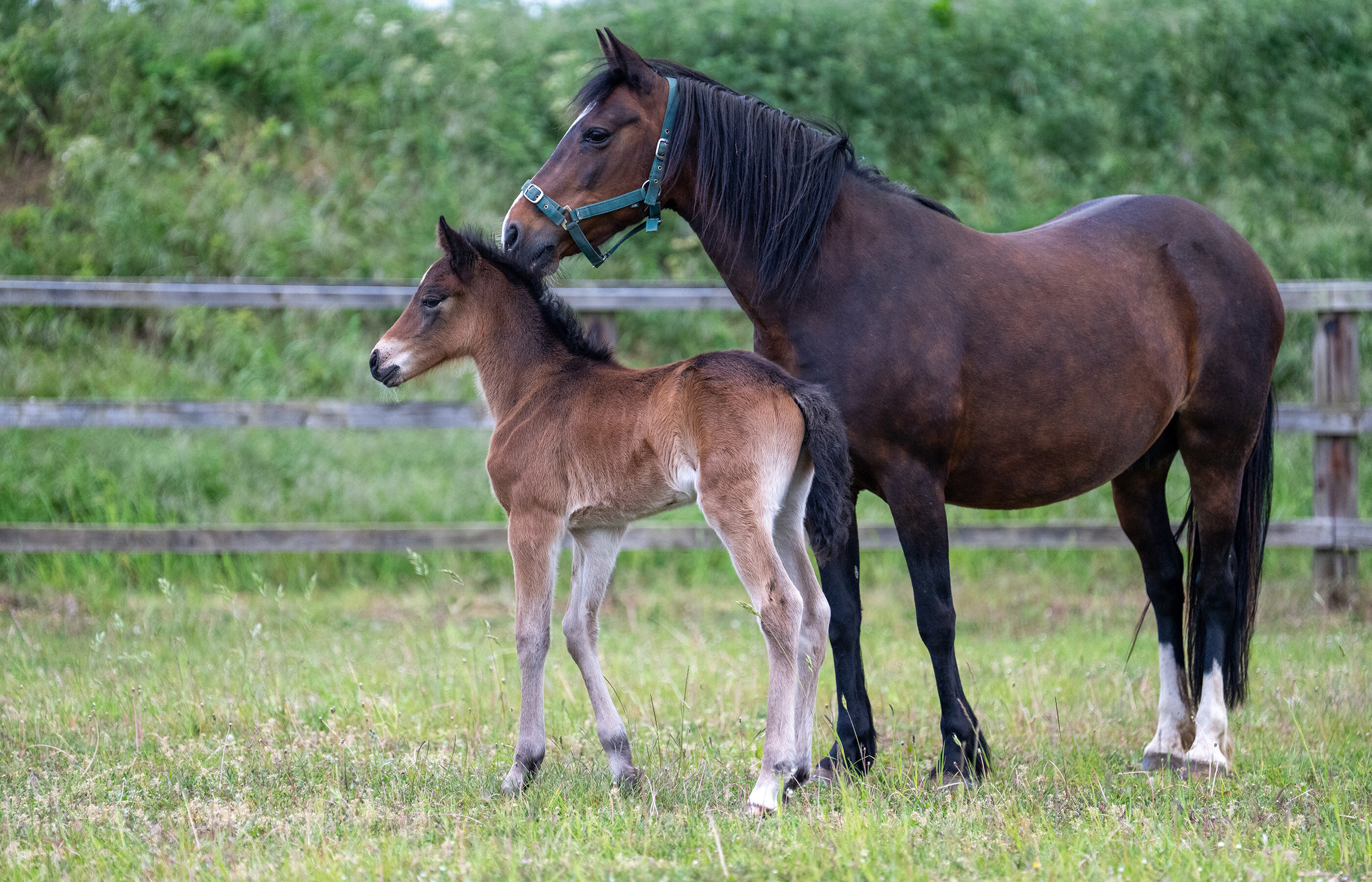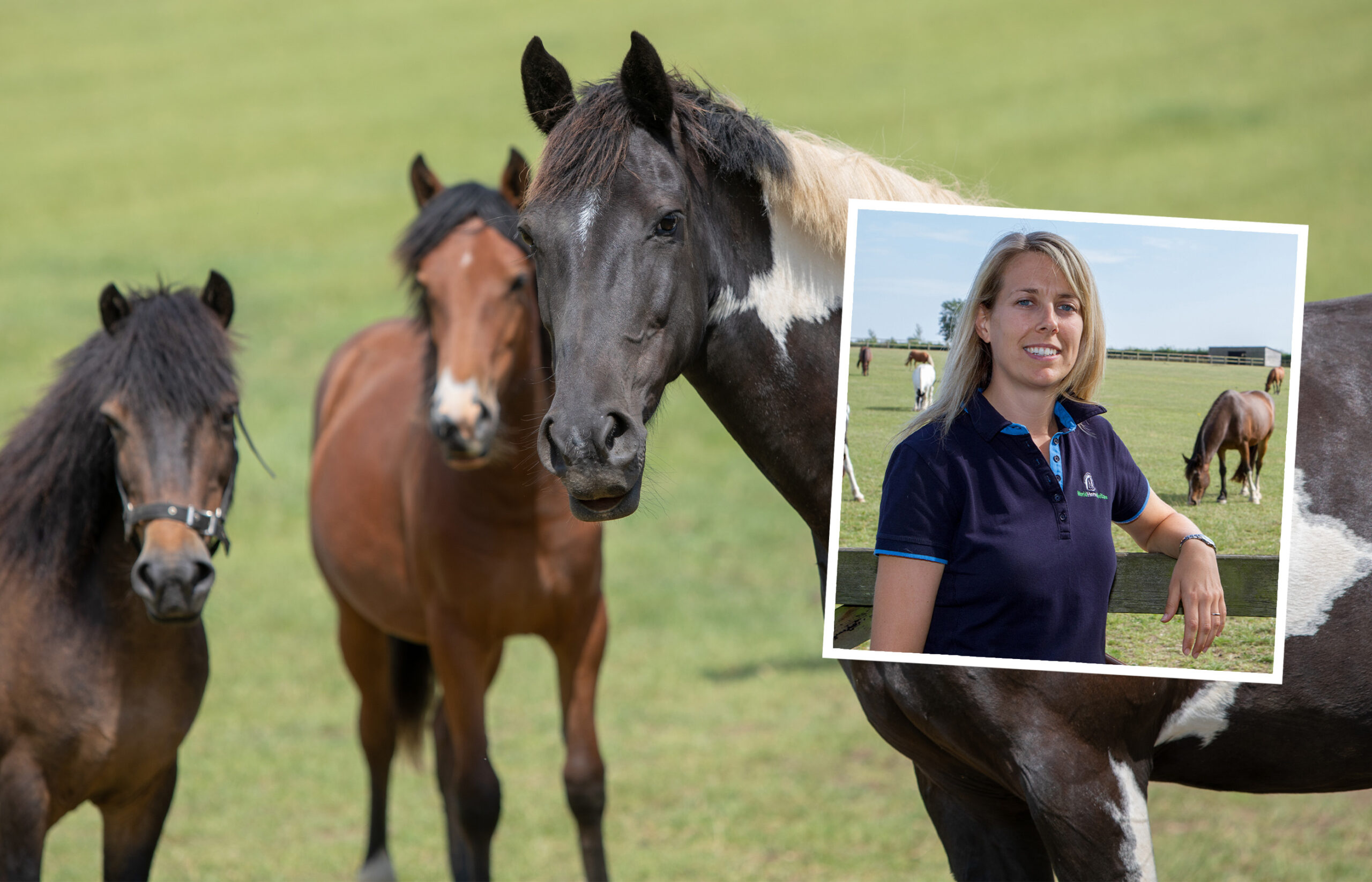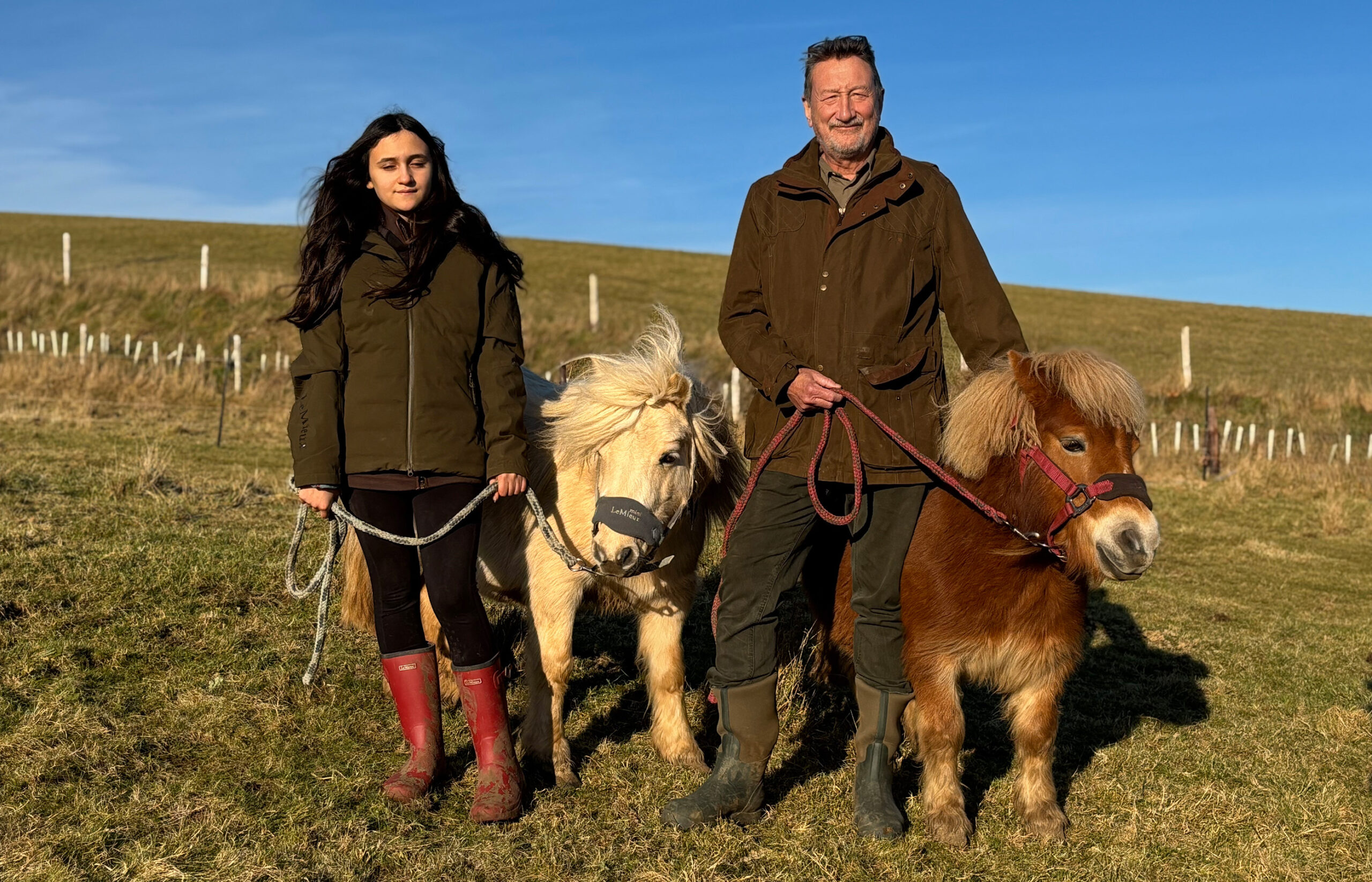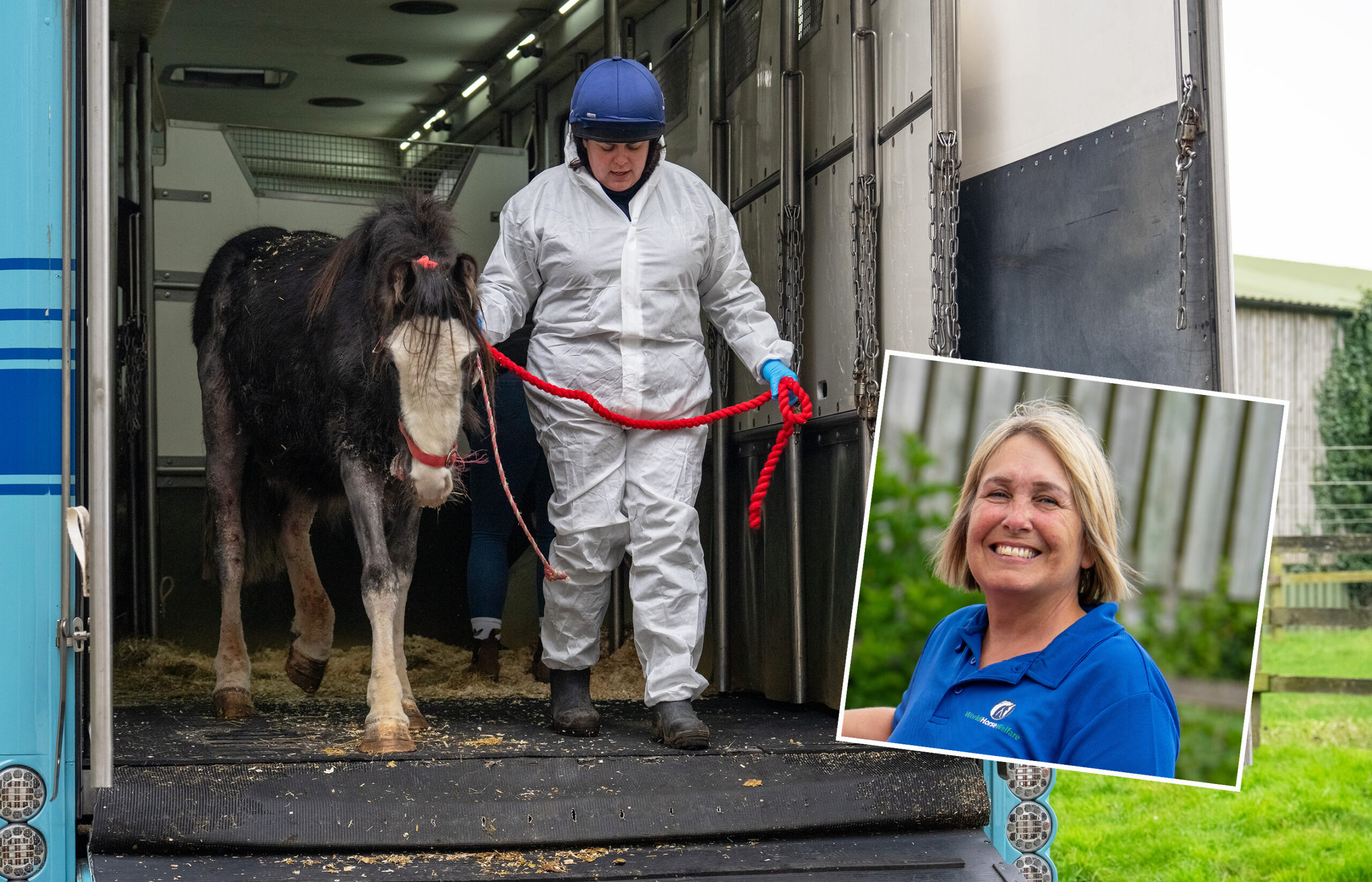A trafficked pregnant mare who we saved when a lorry load of horses intercepted at Dover, has miraculously given birth to a healthy filly foal, named Joy.
Posted on 02/06/2025

Born at our charity’s Norfolk Rescue and Rehoming Centre, this lucky foal’s story of survival against all odds highlights the need for tighter regulations around equine identification and traceability to disrupt the illegal trade of horses which sees them transported thousands of miles in appalling conditions to an unknown fate that can include having their lives cut short in a European slaughterhouse.
The pregnant mare, named Amy, was one of the ‘Trafficked 20’ – a mixed group of horses, including Irish thoroughbreds, leisure horses and Connemara ponies, whose journey had begun in Northern Ireland. They were heading for mainland Europe when stopped at Dover by the Animal and Plant Health Agency (APHA) in December 2024 due to concerns about their welfare.
It is believed that seven of the horses, which were claimed back by their owners, were being moved legitimately and may have provided a cover for those being moved illegally. The remaining horses were likely destined for slaughter or intended to be sold for a purpose they weren’t suited for due to health or age. Many were too sick and weak to travel yet had been crammed into an unsuitable lorry where one foal was on the floor and unable to get back on his feet.
Five Irish Thoroughbreds sadly had to be put to sleep on welfare grounds. The remaining eight horses and ponies, including Amy, came into our care. Many were under-weight and had strangles, a highly contagious bacterial and potentially fatal infection. Two also had pneumonia, and some were suffering from skin conditions and other health issues.
Initial checks also revealed that Amy had two microchips and therefore two identities – a practice often used by those involved in the illegal trade in horses to create a smokescreen to hide their actions and the horse’s history. Investigations into the backgrounds of the Trafficked 20 are ongoing and we are using the findings from this case and what it has already uncovered about the Dover 26 to support our call for action.
Given the horrific conditions Amy endured during the journey, and her poor condition, it’s remarkable that both mother and foal are doing so well. Amy is now safe, and Joy is taking her first steps surrounded by care and the promise of a lifetime of love and security.
“Despite being sick and underweight, horses such as the Trafficked 20 are still profitable to unscrupulous traders,” said Roly Owers, Chief Executive of World Horse Welfare. “Smugglers cut costs by cramming horses onto overloaded vehicles and skipping feed and water. If they don’t sell for riding or breeding, some still end up going for fattening and slaughter where traders make a final profit, no matter how poor the horse’s condition.”
Topics
Related News

Charity partners with Harry Hall 2022
Thanks to everyone who voted for us, we are thrilled to be chosen as one of Harry Hall's charity partners

New research shows obesity is not just a growing problem for humans
Equine obesity is an increasing but under-recognised welfare issue in the UK.
Recommended Blog Posts

Why are so many of our horses rehomed as non-ridden companions?
We catch up with our Head of UK Support to find out more.

“I am a horse”
We catch up with the creator of Peaky Blinders to find out how important horses are to him and his family.

The Trafficked 20 – life in our care
Our Hall Farm Manager fills us in on how the horses rescued from illegal smuggling have settled into our care and continue to recover.
Enjoy reading stories like this?
Join over 55,000 other horse lovers and sign up for our email newsletter

Join over 55,000 other horse lovers and sign up for our email newsletter
Sign me up now